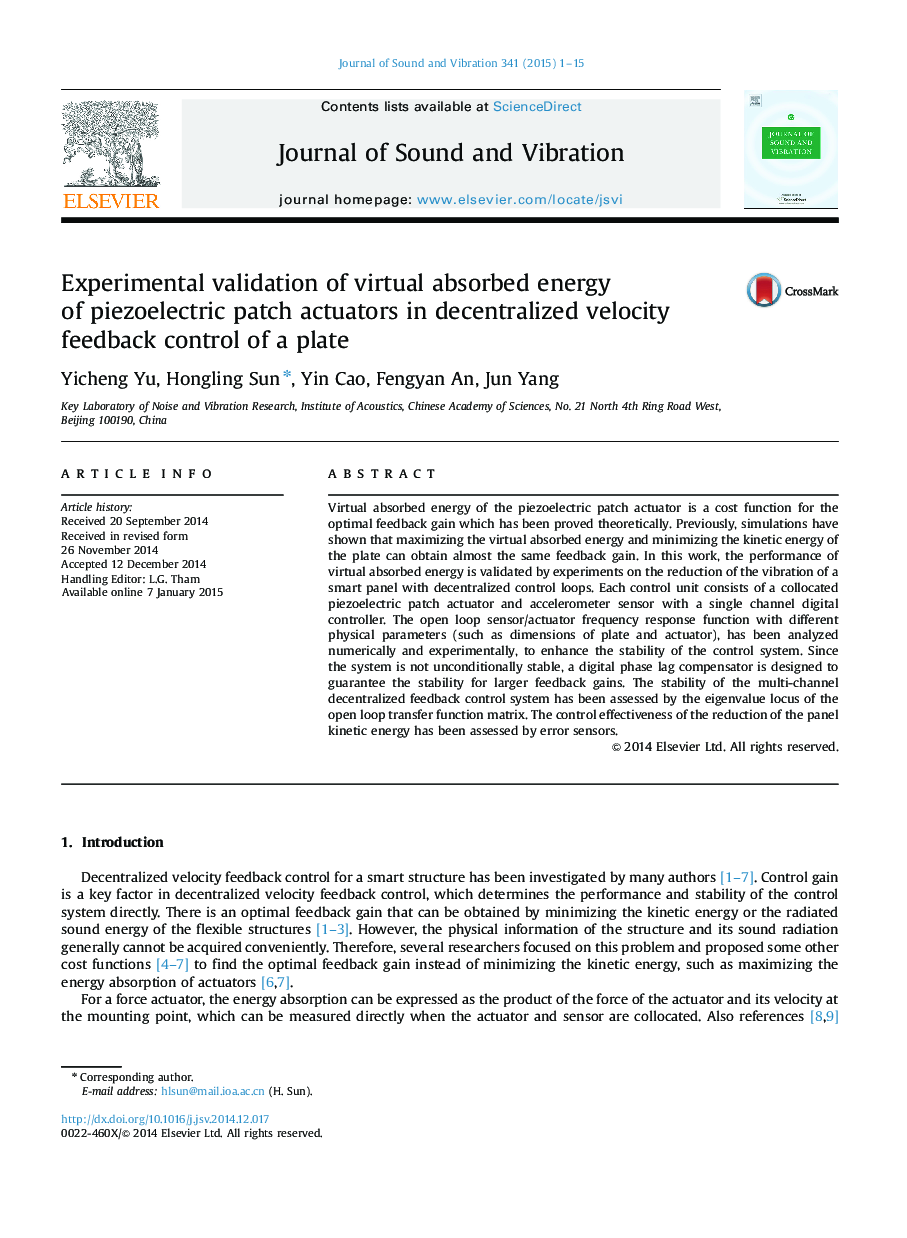| Article ID | Journal | Published Year | Pages | File Type |
|---|---|---|---|---|
| 6756296 | Journal of Sound and Vibration | 2015 | 15 Pages |
Abstract
Virtual absorbed energy of the piezoelectric patch actuator is a cost function for the optimal feedback gain which has been proved theoretically. Previously, simulations have shown that maximizing the virtual absorbed energy and minimizing the kinetic energy of the plate can obtain almost the same feedback gain. In this work, the performance of virtual absorbed energy is validated by experiments on the reduction of the vibration of a smart panel with decentralized control loops. Each control unit consists of a collocated piezoelectric patch actuator and accelerometer sensor with a single channel digital controller. The open loop sensor/actuator frequency response function with different physical parameters (such as dimensions of plate and actuator), has been analyzed numerically and experimentally, to enhance the stability of the control system. Since the system is not unconditionally stable, a digital phase lag compensator is designed to guarantee the stability for larger feedback gains. The stability of the multi-channel decentralized feedback control system has been assessed by the eigenvalue locus of the open loop transfer function matrix. The control effectiveness of the reduction of the panel kinetic energy has been assessed by error sensors.
Related Topics
Physical Sciences and Engineering
Engineering
Civil and Structural Engineering
Authors
Yicheng Yu, Hongling Sun, Yin Cao, Fengyan An, Jun Yang,
